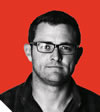Juan Imhoff was always destined to play for Argentina, writes FRANKIE DEGES.
Becoming the first player to score a hat-trick against the Springboks, and playing a key role in a fourth try, wasn’t as important for wing Juan Imhoff as the fact his contribution helped Argentina to their first win against a country that has always been a part of his DNA.
There was never any doubt that the son of José Luis Imhoff, a former Pumas player and coach, would play rugby.
‘All my sporting memories of when I was a young boy involve a rugby ball or a scrap with my brothers because of rugby,’ he recalls. ‘My father always tells the story of when he was coaching Los Pumas, and the players and coaches were in town signing autographs, I even politely asked him for his!’
José Luis, now a cardiologist, was the proudest of fathers in Durban when Argentina beat the Boks 37-25. He was there as one of 19 members of the first Pumas team that toured South Africa in 1965.
After the promise made by Junior Springbok manager JF Louw at the end of a 12-game tour to Argentina in 1959 – ‘I will do everything to ensure we invite you to tour our country’ – there were concerns about the strength of Argentinian rugby. South African Rugby Board president Danie Craven sent coach Izak van Heerden to help the Pumas prepare and they repaid the favour by beating the Junior Springboks at Ellis Park.
The group of septuagenarians was invited by the Argentinian Rugby Union (UAR) and its sponsors to return for the 50th anniversary of the tour. They dined with the players on the Thursday before the Test, sharing their knowledge and passion.
‘I’ve known these guys all my life as they have a big reunion once a year that includes the families,’ says Imhoff. ‘But this time was different. For my generation to be in their company, hear their stories and feel their aura played a crucial role in our win two days later.’
Speed, vision, quick feet, ubiquity and an eye for the tryline are some of Imhoff’s key attributes. As someone who’d rather spend a month in a gym than on the beach, he lives and breathes rugby.
Having not been selected for age-grade sides, Imhoff cut his teeth with the Pumas Sevens team and then played for the Vodacom Cup-winning Pampas XV in 2011. He went to the World Cup in New Zealand later that year, scoring tries against Romania and Georgia.
He then joined Racing Métro where he was mentored by former Sharks flyhalf Juan Martín Hernández, a Paris resident for eight years.
‘Going from a pampered life at home to having to do everything on my own was a big transition,’ says Imhoff. ‘Juani and his wife became my family there.’
The players developed an uncanny on-field relationship, with that almost telepathic connection bringing Imhoff his third try at Kings Park when Hernández caught players, spectators and the TV producer off-guard by tapping a penalty and sending his mate to glory.
‘With him around, you have to be alert as he is such a special player and always looking for opportunities,’ Imhoff says. ‘He took one and I crossed for a try that should be credited to him.’
Imhoff will not get involved in the controversy surrounding his third five-pointer.
‘The referee called time on, Juani saw the chance and that is that.’
With an Argentinian team set to join Super Rugby next year, the UAR has modelled its business plan on New Zealand’s and if you want to play for Los Pumas, you must sign a full contract with the national body. The core of the Pumas World Cup squad will be available for the yet-to-be-named Super Rugby franchise, but some of the older players such as Juan Martín Fernández Lobbe, Marcos Ayerza and Marcelo Bosch will not return home. Surprisingly, Imhoff won’t either.
‘All I’ve wanted to do from as early as I can remember is play for Argentina, and it hurts to know I might not do so after the World Cup,’ he says.
‘It took me a long time to find my place in Paris, to fit in. I’ve experienced huge personal growth and overcome many challenges. Now that I’m settled, I want to stay there to further my rugby experience and continue to learn. But I am always available for my country and it will only take one call and I’ll be back in a flash.’
– This article first appeared in the October 2015 issue of SA Rugby magazine



